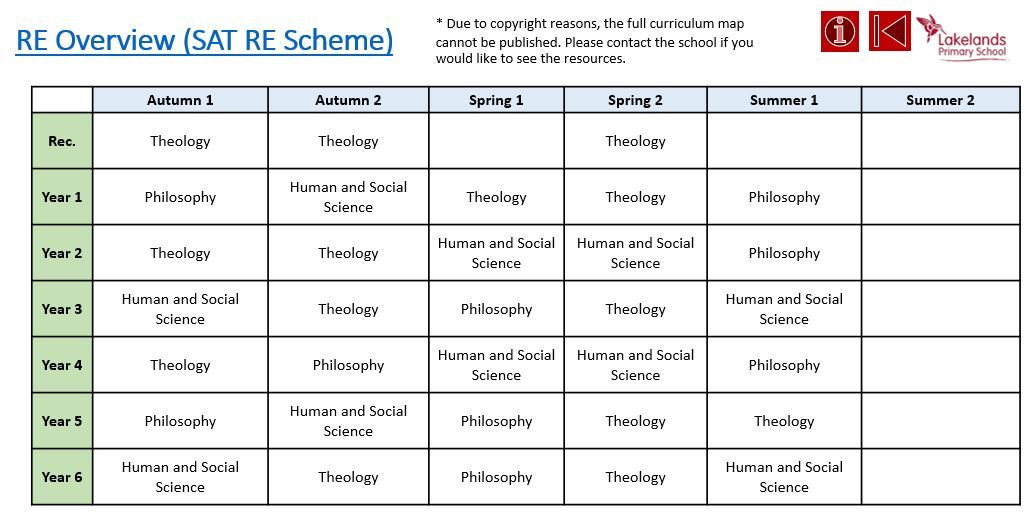- Home
- Curriculum
- Subjects
- Religious Education
Religious Education
At Lakelands Primary School, we teach our pupils (from Year 1) discrete subjects. Pupils will understand that in Religious Education, we learn about theology, philosophy and human and social science.
"The essence of all religions is one. Only their approaches are different."
Mahatma Ghandi
Religious Education Overview

Religious Education Knowledge and Skills Coverage
All units of learning in our Religious Education curriculum are designed to cover the following key areas:
- Theology
- Philosophy
- Human and Social Science
Across the school, we teach Religious Education to help pupils acquire and develop a repertoire of skills and knowledge so that they increase their understanding of different religions and the people that follow them
The following core concepts underpin the teaching of Religious Education:
- Theology:
- Where beliefs come from
- How beliefs change over time
- How beliefs related to each other
- How beliefs shape the way believers see the world
- Philosophy:
- The nature of knowledge, meaning and existence
- How and whether things make sense
- Issues of right and wrong, good and bad
- Human and Social Science:
- The diverse nature of religion
- Diverse ways in which people practice and express beliefs
- The ways in which beliefs shape individual identity, and impact on communities and society and vice versa
We use these to support teacher knowledge and improve lessons:
How is Religious Education Taught?
There is a legal duty with which schools must comply when teaching Religious Education.
At Lakelands, we teach Religious Education as a discreet subject from Reception to Year 6 using the Locally Agreed Syllabus from Essex. We use the resources as laid out by the Saffron Academy Trust Religious Education Curriculum, which is an enquiry-led, multi-faith syllabus viewed, considered, and explored through three distinct lenses; theology, philosophy and human and social sciences.
ENRICHMENT OPPORTUNITIES IN REligious EDUCATION
There are various ways in which we enrich the pupils' knowledge and skills beyond individual Religious Education lessons:
- Assemblies relating to Religious Education, including festivals such as Diwali and Harvest. Examples of these can be found at the bottom of this page.
- Whole school events such as Carols in the Church and Harvest Festival.
- Trips and visits to places of significance such as the local church, and visits from local faith leaders.
Religious EDUCATION LINKS WITH OTHER CURRICULUM AREAS (INCLUDING EYFS)
Religious Education is taught discreetly from Reception, where pupils learn about Christian stories (such as the Christmas Story). They also learn about other key festivals such as Lunar New Year, Holi and Diwali. We also celebrate our cohorts faith and festivals through the use of Tapestry.
Religious Education is also closely linked with Relationships, Sex and Health Education, where we learn about different types of families and beliefs. In our Literature Spine, we include books from the No Outsiders curriculum, as well as books such as The Proudest Blue.
Knowledge Organisers
As we use the SAT RE Schemes of Work as the basis of our Relationships, Sex and Health Education curriculum, we cannot share Knowledge Organisers on our website for copyright reasons.

